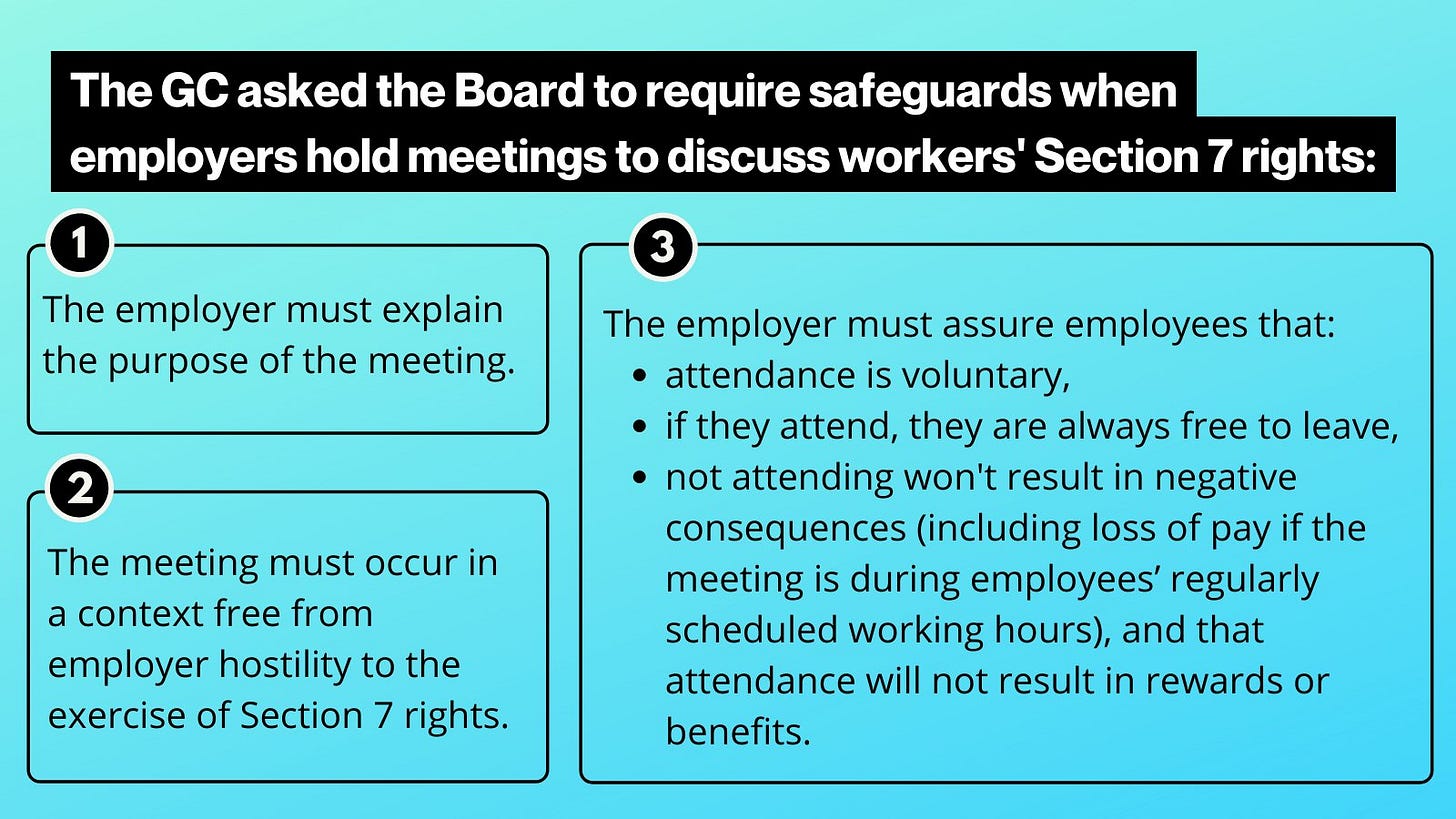BREAKING: NLRB Bans 'Captive Audience' Meetings
Although long expected, the move comes as control of the NLRB is expected to shift in a new Trump administration.
By Peter List, Editor | November 13, 2024
On Wednesday, the National Labor Relations Board (NLRB) issued a decision in Amazon.com Services LLC ruling that employers that hold mandatory meetings (aka “captive audience” meetings) are unlawful.
Though long expected—and many employers have already adjusted to the expected ruling—the NLRB stated that the ruling would be prospective, not retroactive, stating:
“The Board made clear that this change in the governing standard will be applied prospectively only, to appropriately accommodate the reasonable reliance employers may have previously placed on Babcock & Wilcox.”
According to the NLRB:
The Board articulated several reasons why captive audience meetings interfere with employees’ rights under the Act, thus violating Section 8(a)(1). First, such meetings interfere with an employee’s right under Section 7 of the Act to freely decide whether, when, and how to participate in a debate concerning union representation, or refrain from doing so. Second, captive audience meetings provide a mechanism for an employer to observe and surveil employees as it addresses the exercise of employees’ Section 7 rights. Finally, an employer’s ability to compel attendance at such meetings on pain of discipline or discharge lends a coercive character to the message regarding unionization that employees are forced to receive. The employer’s ability to require attendance at such meetings demonstrates the employer’s economic power over its employees and reasonably tends to inhibit them from acting freely in exercising their rights.
Here is the NLRB’s full press release.
Although the makeup of the NLRB will change in January with the incoming Trump administration, until this is overturned and due to the Cemex Doctrine currently in effect, employers and their agents would be well advised to adhere to a voluntary-meeting format—including one-on-one discussions between supervisors and employees—as the General Counsel has previously articulated (in 2022).






